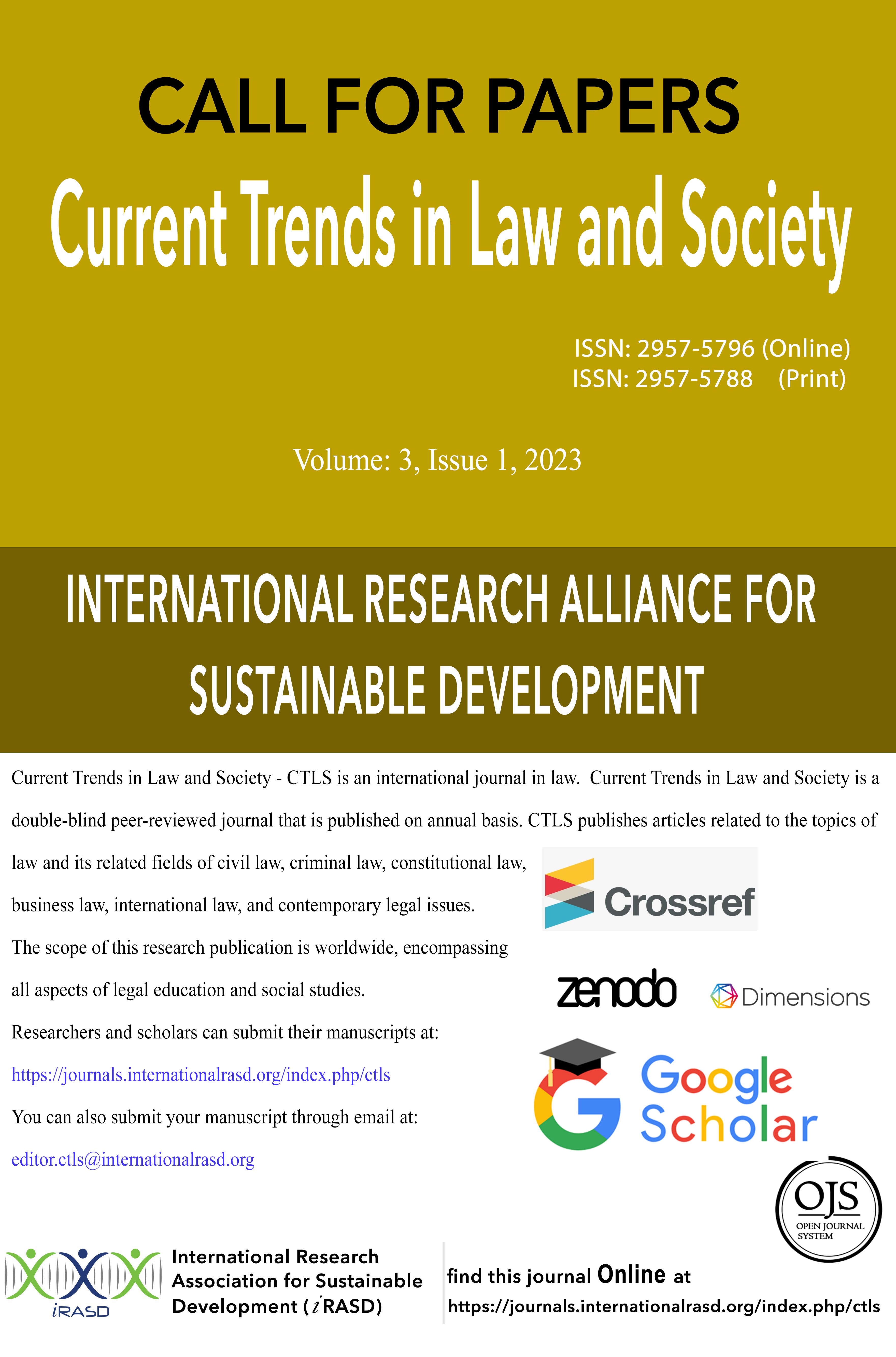An Extensive Evaluation of The Anti-Defection Clause In Pakistan: A Curative Strategy
DOI:
https://doi.org/10.52131/clts.2022.0201.0008Keywords:
Anti-defection law, Judgments, ConstitutionAbstract
In a democratic country like Pakistan, the elected representatives of the political party with the most electoral support often form the government. Defection, on the other hand, frequently brings the will of the electorate into question. In addition to weakening democratic norms, the process of immoral and unprincipled defection also reduces public confidence in democracy. There is no distinct law in Pakistan that serves only to protect political mandates. The Constitution only contains one clause that safeguards political parties' rights. However, the law is not without flaws. The primary goals and objectives of the researcher in conducting research on this topic are to ascertain whether there is a pressing need to enact anti-defection laws in Pakistan, what steps can be taken to make them sufficiently effective in preventing defections, and whether Article 63-A has any built-in loopholes that have neutralized the beneficial effects of the law. In order to evaluate the implications and repercussions of defection in Pakistan, the researcher has made an effort to identify and explain the legislation relevant to defection under the Pakistani Constitution, how other nation deals with it, and finally, analyze the various Judicial Pronouncements on Article 63-A.
Downloads
Published
Issue
Section
License
Copyright (c) 2023 Ishwah Abbas Khawaja, Usama Jamil

This work is licensed under a Creative Commons Attribution-NonCommercial 4.0 International License.







